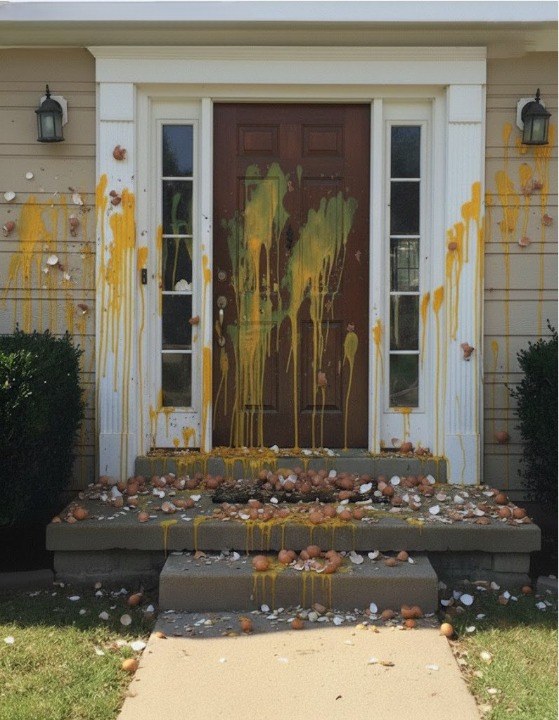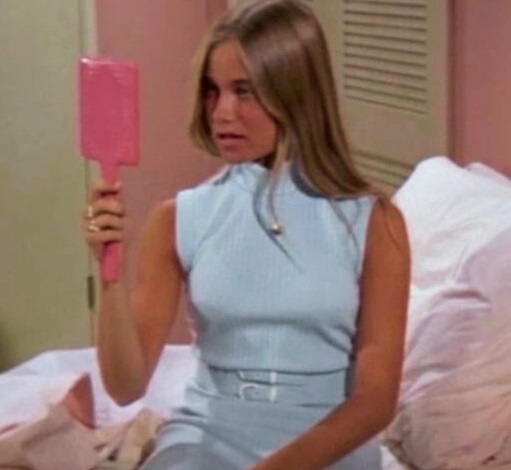My name is Velma, and I’m 67 years old. For most of my life, music has been my way of speaking to the world — especially after losing my husband, Arvid. In the quiet years that followed his passing, my piano became my companion, a vessel for memory and peace. I never imagined that something so simple — playing a soft tune in the morning — would one day ignite a small neighborhood storm that ended with tears, laughter, and forgiveness.
This is the story of how one man’s anger turned into a moment of understanding, and how music — the same sound that sparked his frustration — eventually became the bridge that brought him back to kindness.
Life After Loss: Finding Comfort in Music
When Arvid passed away three years ago, my world shifted in ways I couldn’t fully explain. The doctors said it was his heart that gave out, but deep down, I think it was simply exhaustion. He had fought through years of pain and worry, always smiling even when life tested us.
After he was gone, the house that once felt alive with chatter and laughter became painfully silent. Every corner carried echoes of him — the smell of coffee brewing in the kitchen, the sound of his steps down the hallway, the squeak of his workbench in the garage.
The only thing that still felt alive — that still sounded like us — was the piano.
Arvid had surprised me with it when we were just newlyweds, decades ago, back when we lived in a tiny apartment above a laundromat. He had saved for months, skipping lunches and walking to work to buy that instrument. It was a secondhand upright, chipped on one side, but to me, it was pure beauty. I remember crying when he rolled it into our apartment, the soft light catching the polished keys.
From that day on, music became our shared language.
And even now, in my little home on Elm Street, I still sit by the window every morning, a cup of coffee in hand, and play his favorite song — “Moon River.” The melody reminds me of Sunday mornings with him, humming along while fixing things in the yard.
I don’t play loudly. I never mean to bother anyone. My music is just a way of saying, “I remember.”
A New Neighbor and a Sudden Change
For years, everyone in the neighborhood had been kind about my playing. Some would smile or wave as they passed by. Children sometimes stopped their bikes near the sidewalk just to listen for a while. On quiet afternoons, I’d hear a faint applause from across the street, and it always warmed my heart.
But that peace ended the day a new neighbor moved in — a man named Duval.
From the very first time I saw him, something in his demeanor told me he carried a heavy burden. He was curt, expressionless, and rarely smiled. I tried to welcome him in the way my husband would have wanted — with kindness. I baked cookies, wrote a note that said “Welcome to the neighborhood,” and left it on his porch.
He never replied. Not even a thank you.
Soon, I noticed him glaring at my house. If my sprinkler ran too long, he would sigh loudly. If I brought out the trash a minute late, he would shake his head. And when I played the piano — even softly — I’d sometimes catch him staring through his window, his expression tight and cold.
I told myself not to take it personally. Maybe he was lonely or just needed time to adjust. I didn’t want to believe that simple music could make someone so bitter.
The Morning Everything Changed
It happened on a bright, calm morning — the kind of day that feels fresh and hopeful. I had just brewed my coffee and planned to sit by the window, as always, and play a few songs to start the day.
But when I opened the door to step outside, the sight stopped me cold.
My front door was splattered with eggs — dripping yolks, broken shells, streaks of yellow sliding down the white paint. Trash was scattered all over the porch: an empty soda can, banana peels, even a crumpled fast-food bag. The smell hit next — sour, rancid, unbearable.
My knees trembled. For a moment, I thought maybe it was kids playing a prank. But as I looked down, I saw something impossible to ignore — a trail of eggshells leading straight from my porch to Duval’s driveway.
The realization made my stomach twist. Could he really have done this? Over piano music?
I stood there, stunned. My hands shook as I tried to clean up, but my heart pounded harder with every glance toward his house. Finally, I took a deep breath and walked across the lawn.
When he opened the door, he looked exactly as I expected — unbothered. His eyes were heavy, a mug of coffee in his hand. He didn’t even look surprised to see me.
“Duval,” I said quietly. “Do you know anything about my front door?”
He took a slow sip of coffee, then said, flatly, “Yeah. I did it.”
The words hit me like a slap.
“You threw eggs at my house?” I asked, thinking I must have misheard.
He shrugged. “You play that piano every day. I’m done listening. Maybe now you’ll stop.”
I was too shocked to speak. “You could have just talked to me,” I said finally. “I would’ve listened.”
He smirked. “I don’t waste time asking people to be considerate. This was faster.”
Then, without another word, he shut the door.
The Weight of Cruelty
I walked back across my yard, tears stinging my eyes. I tried to hold myself together, but each step made the pain heavier. The house — my refuge — suddenly felt violated. How could anyone be so cruel over something so harmless?
I filled a bucket with warm, soapy water and started scrubbing the stains from my door. The smell lingered. The shells clung to the wood. My hands ached, but I kept scrubbing, refusing to cry anymore.
That’s when I heard the familiar sound of tires on gravel.
My daughter, Lux, had arrived.
She had told me earlier in the week that she was coming over to bring groceries and spend the morning with me. In the chaos of everything, I had completely forgotten. When she stepped out of the car, smiling, her joy vanished instantly.
“Mom? What happened?” she asked, rushing toward me.
I tried to brush it off. “It’s nothing, sweetheart. Just a little mess.”
But Lux wasn’t fooled. “This isn’t a little mess, Mom. Someone egged your house.”
I sighed, trying to calm her down. “It’s okay. I’ve already started cleaning.”
She crouched beside me, her voice trembling with anger. “Who did this?”
I hesitated, not wanting to escalate things. But Lux knew me too well. Her expression hardened when she realized I was hesitating.
“Mom,” she said firmly, “tell me the truth.”
So, I told her everything — about Duval, his coldness, his confession, and the way he slammed the door in my face.
For a long moment, Lux just stared at me, jaw clenched. Then she stood up. “I’ll handle this.”
“Lux, no—” I started, but she was already halfway down the street.
A Daughter’s Payback — Without Revenge
From the window, I watched as Lux knocked on every door in the neighborhood — Mrs. Midge’s, the Lewises’, the Thompsons’. She spoke quickly, pointing toward our house and then toward Duval’s. Within minutes, people began stepping outside, shaking their heads, whispering to each other.
When Lux came back, her cheeks were flushed, but there was a determined smile on her face.
“Mom,” she said, “everyone’s furious — not at you, but at him. They all love your music! Mrs. Midge said she opens her window every morning to listen. Mr. Lewis said his grandkids fall asleep to your songs. Even the Brooks family said your playing reminds them of their grandmother.”
My throat tightened. I had never realized anyone noticed my music that much.
Lux grinned. “You’re not the problem, Mom. He is.”
I didn’t know what she meant until I heard the sound of laughter and chatter outside. One by one, the neighbors began stepping out — with instruments.
Mrs. Midge brought her old guitar. Mr. Lewis had a harmonica. The Thompsons came out with a small drum set their son used for band practice. Even the kids brought tambourines and maracas from their toy boxes.
Lux winked. “Let’s give Duval a concert.”
The Neighborhood Symphony
By afternoon, the quiet street had transformed into a celebration. Someone brought out lemonade. Another neighbor pulled out their old record player and placed it near my porch. I sat at the piano, hesitant at first, but Lux squeezed my shoulder.
“Play, Mom,” she whispered. “Play for Dad.”
So I did.
The first notes of “Moon River” floated through the air — gentle, steady, full of memory. The neighbors joined in, adding their own sounds, offbeat and imperfect but joyful. Laughter filled the gaps between chords. The kids danced on the sidewalk.
At first, Duval didn’t come out. His curtains stayed closed, his porch still and silent. But when the second song began — an old tune everyone seemed to know — the crowd cheered louder. Someone shouted, “Come on, Duval! You can’t hide forever!”
For a while, nothing happened. Then, slowly, his front door opened.
He stepped outside, his face red, his hands shoved into his pockets. At first, he looked angry — embarrassed even — but then something in his expression softened as he watched the little community he had pushed away come together.
Lux didn’t miss a beat. She called out, “You can join us if you want!”
There was a long pause. Then, to everyone’s surprise, Duval walked closer.
He didn’t say anything right away. He just stood there, eyes downcast, listening to the piano. And when the song ended, he finally spoke.
“I’m… sorry,” he said quietly, his voice rough. “I was wrong.”
Healing Through Understanding
The crowd went silent for a moment. Then, one by one, people smiled and nodded. I looked at him, unsure what to say.
Duval continued, “It wasn’t about the music. It was about me. My wife passed away last year. She used to play, too. Hearing your piano brought it all back, and I didn’t know how to handle it.”
The words hung heavy in the air. My heart ached. Suddenly, his anger made sense — not as cruelty, but as grief.
I walked toward him and said softly, “You could’ve just told me. We could’ve remembered them together.”
He gave a faint, broken smile. “Yeah. I see that now.”
From that day forward, something changed on Elm Street. Duval began talking to the neighbors. He mowed lawns for the elderly couple down the block. Sometimes, he even sat on his porch with a cup of coffee and listened when I played — not in anger, but in quiet reflection.
A few months later, I noticed a delivery truck outside his house. When the men carried something large and rectangular inside, I couldn’t believe my eyes — it was a piano.
A New Tune on Elm Street
That winter, Duval invited a few neighbors over for coffee. It was the first time I had been inside his home. He looked lighter — still quiet, but different. In the corner of his living room sat his new piano, gleaming in the afternoon light.
“I’ve been practicing,” he said shyly. “I’m not good yet. But maybe someday, we can play together.”
Tears welled up in my eyes. “I’d like that very much,” I said.
From then on, Elm Street became known for its afternoon music. Sometimes it was me at my window, sometimes Duval, sometimes both. The children danced, and neighbors hummed along. The air was filled with laughter and melody.
Music — once the cause of conflict — became the thread that wove the community closer than ever.
Lessons in Harmony
Looking back, I realize that this story wasn’t about anger or revenge. It was about grief, healing, and the quiet power of kindness.
Lux didn’t fight Duval with cruelty. She reminded everyone of community. Instead of shame, she brought compassion into the spotlight — and that made all the difference.
Sometimes, when people hurt others, it’s not because they’re bad — it’s because they’re hurting. Music taught us that again.
So every morning, I still sit by the window, open the curtains, and play “Moon River.” And across the street, another piano joins in — just a little off-key, but perfectly in tune with the spirit of forgiveness.
💬 Final Reflection
In a world that often feels divided, stories like this remind us that empathy can mend even the most unexpected wounds. A single melody, a small act of patience, or a daughter’s courage can transform anger into connection.
Music doesn’t just fill silence — it heals it.
And sometimes, the best payback isn’t revenge at all. It’s love, played in the right key.



